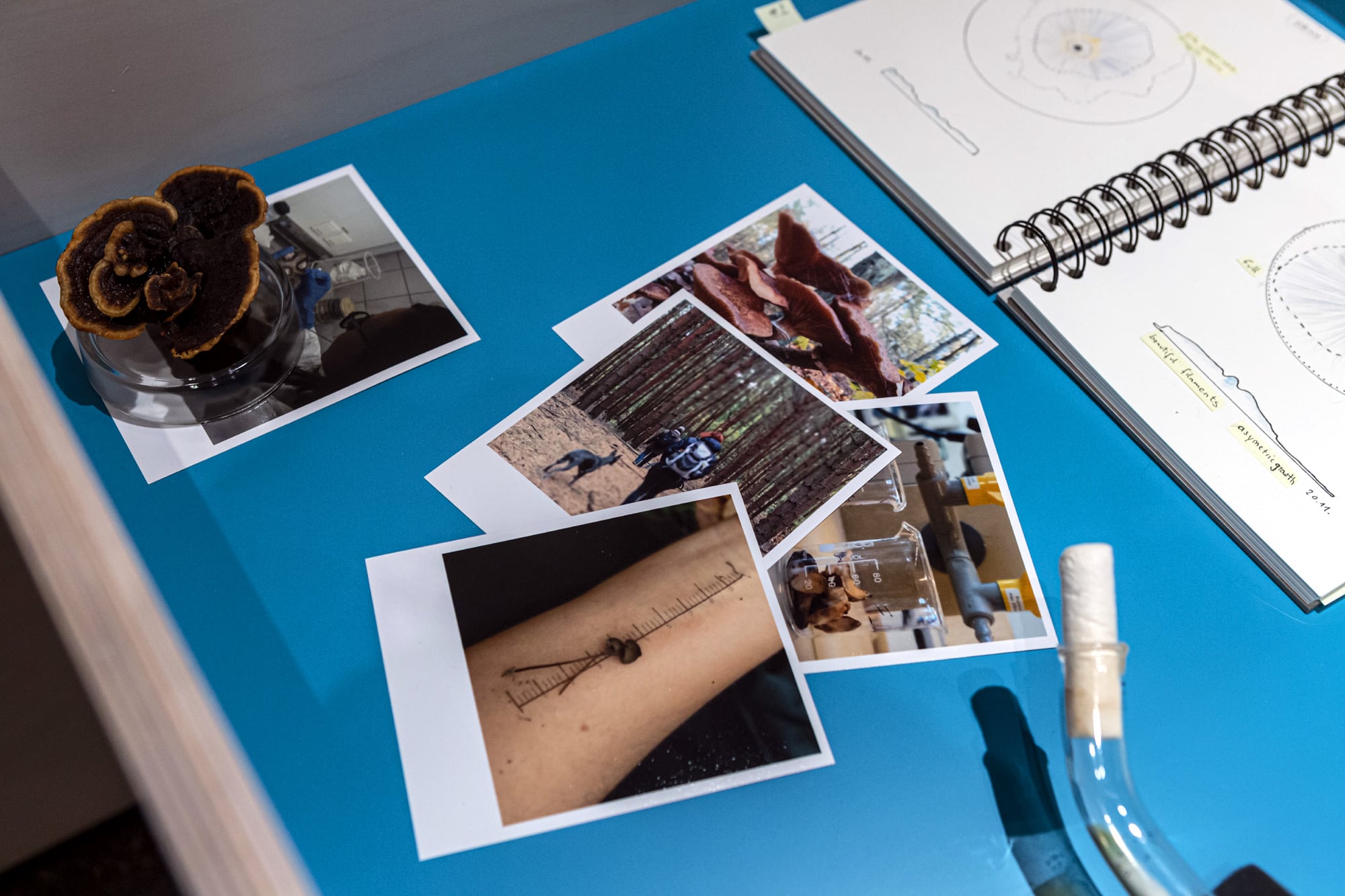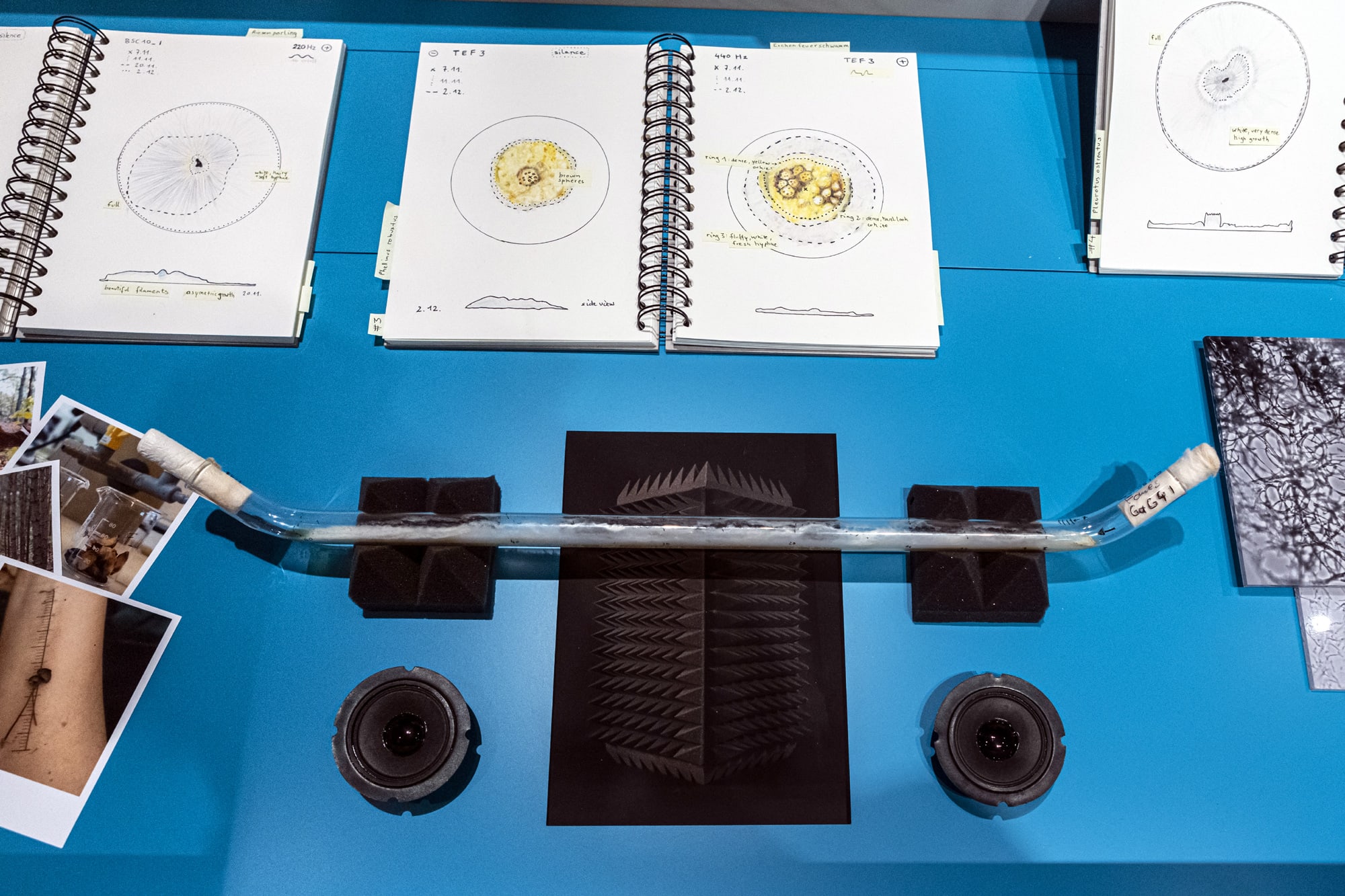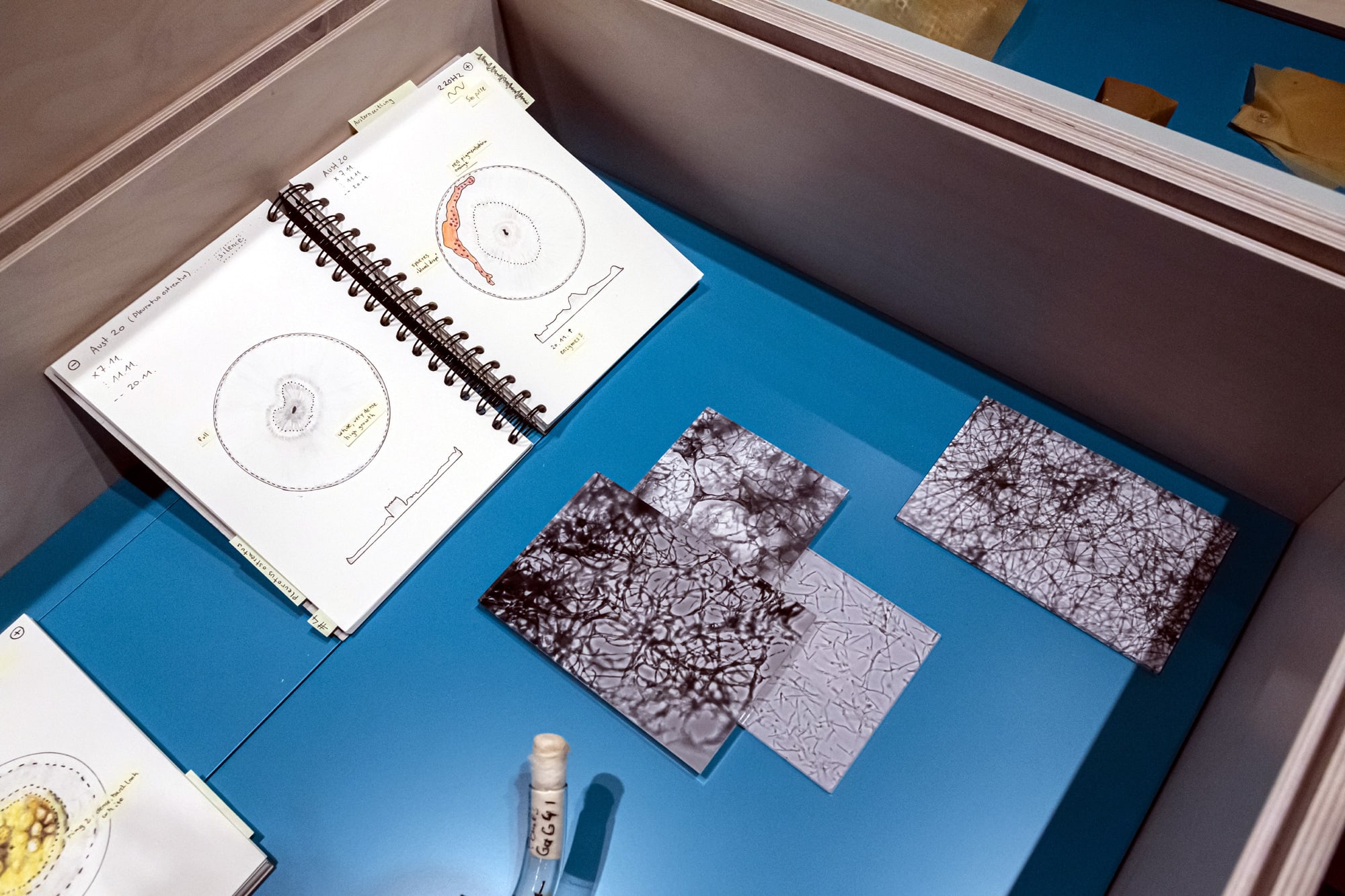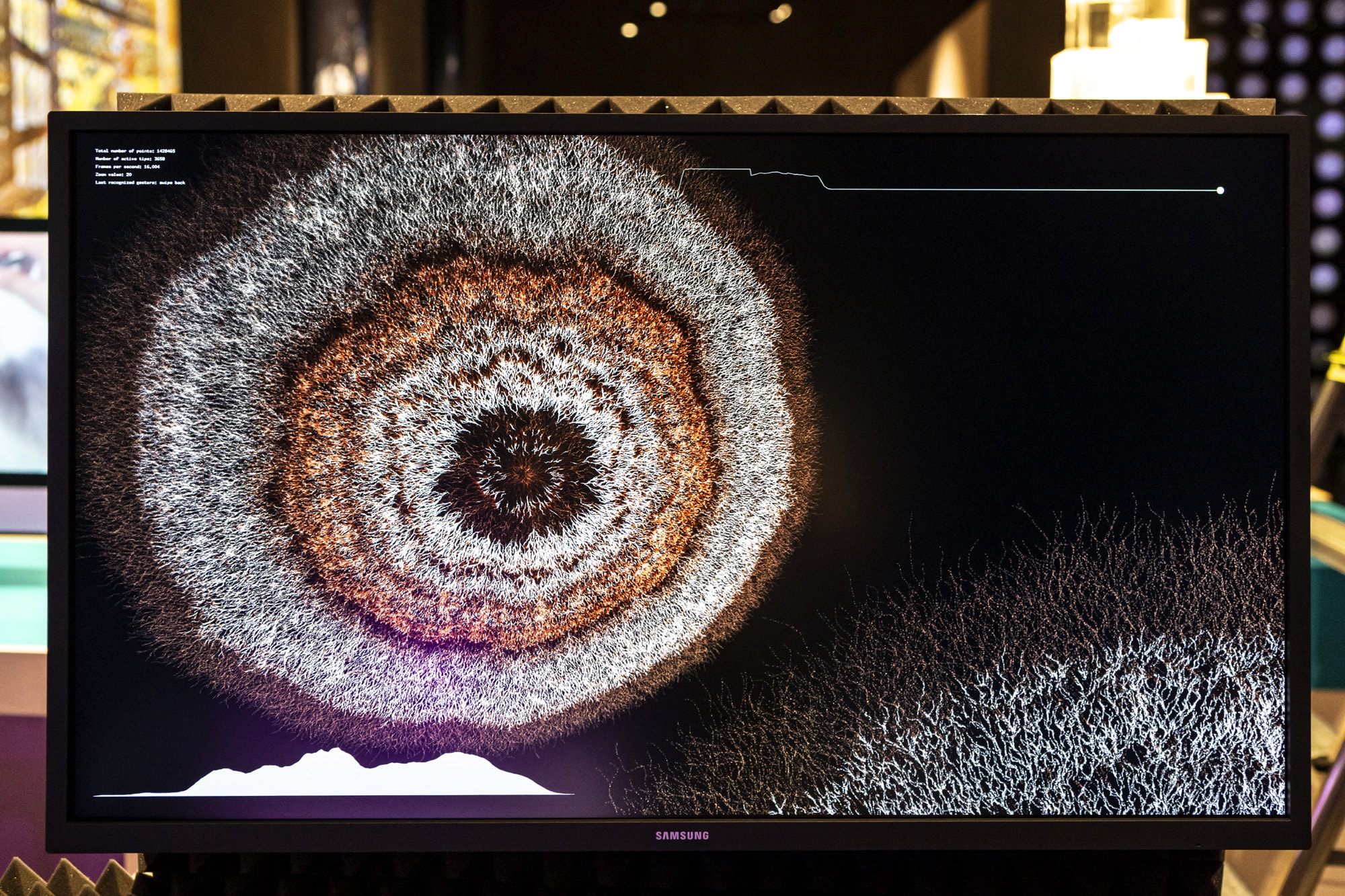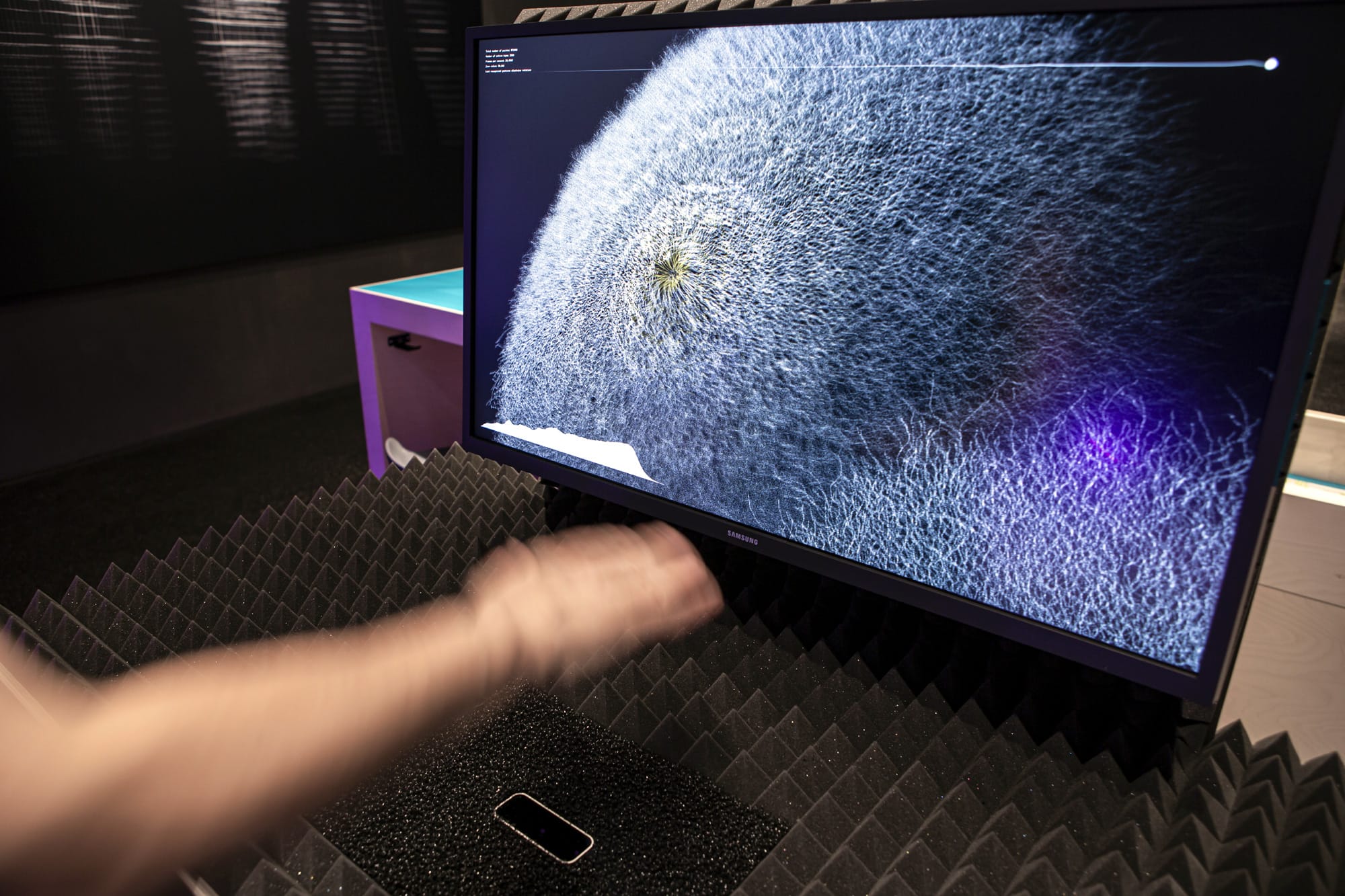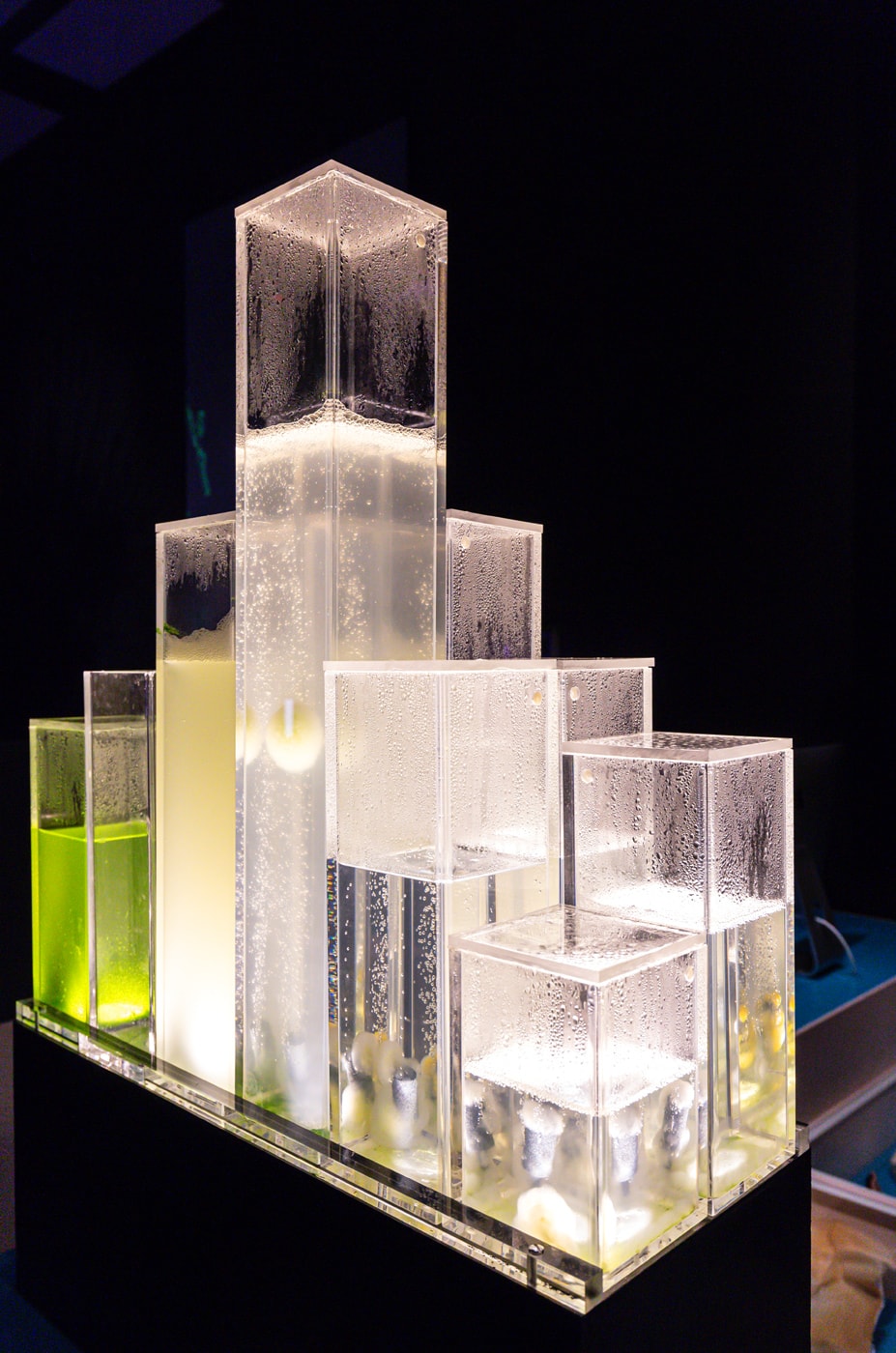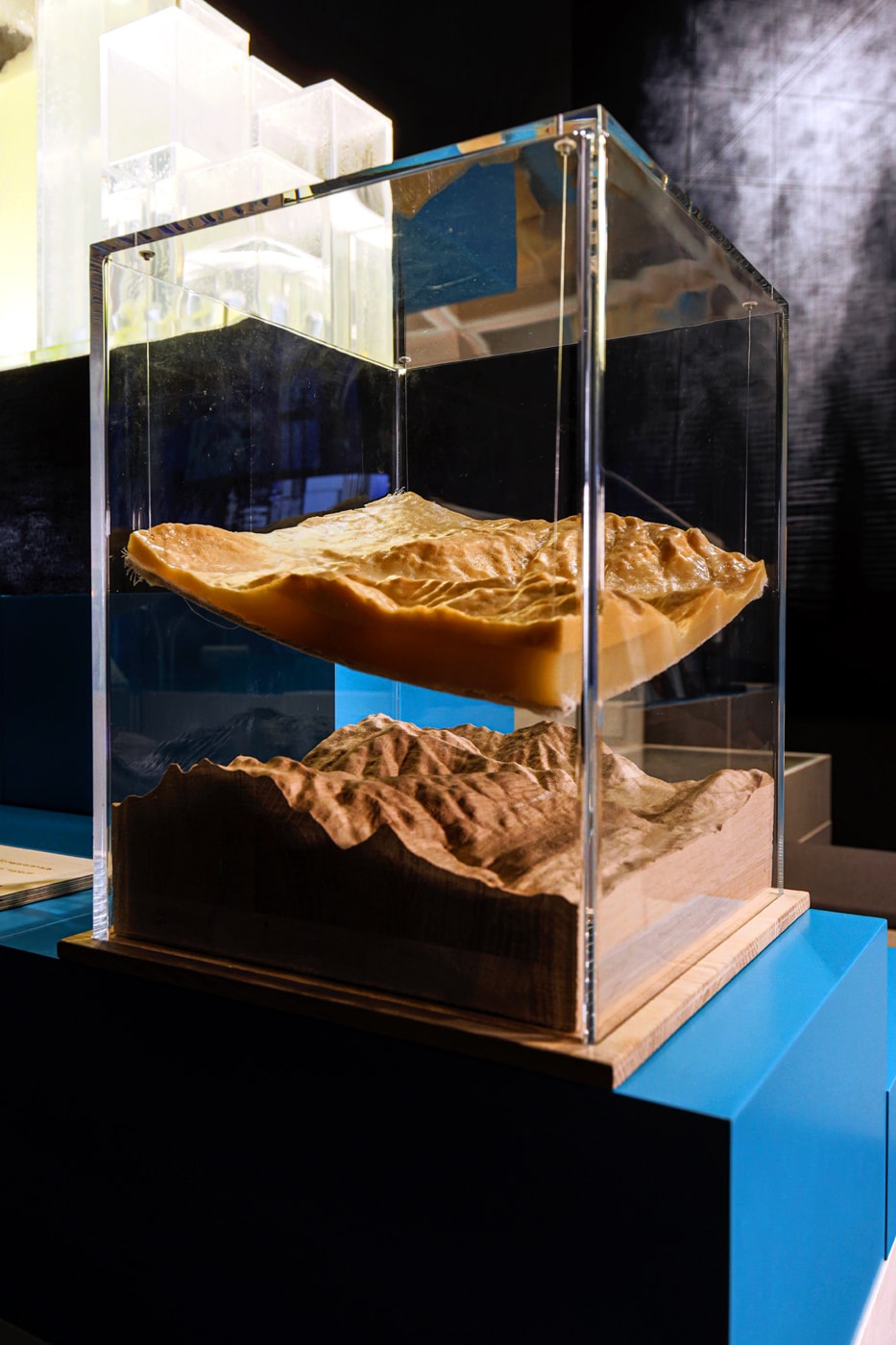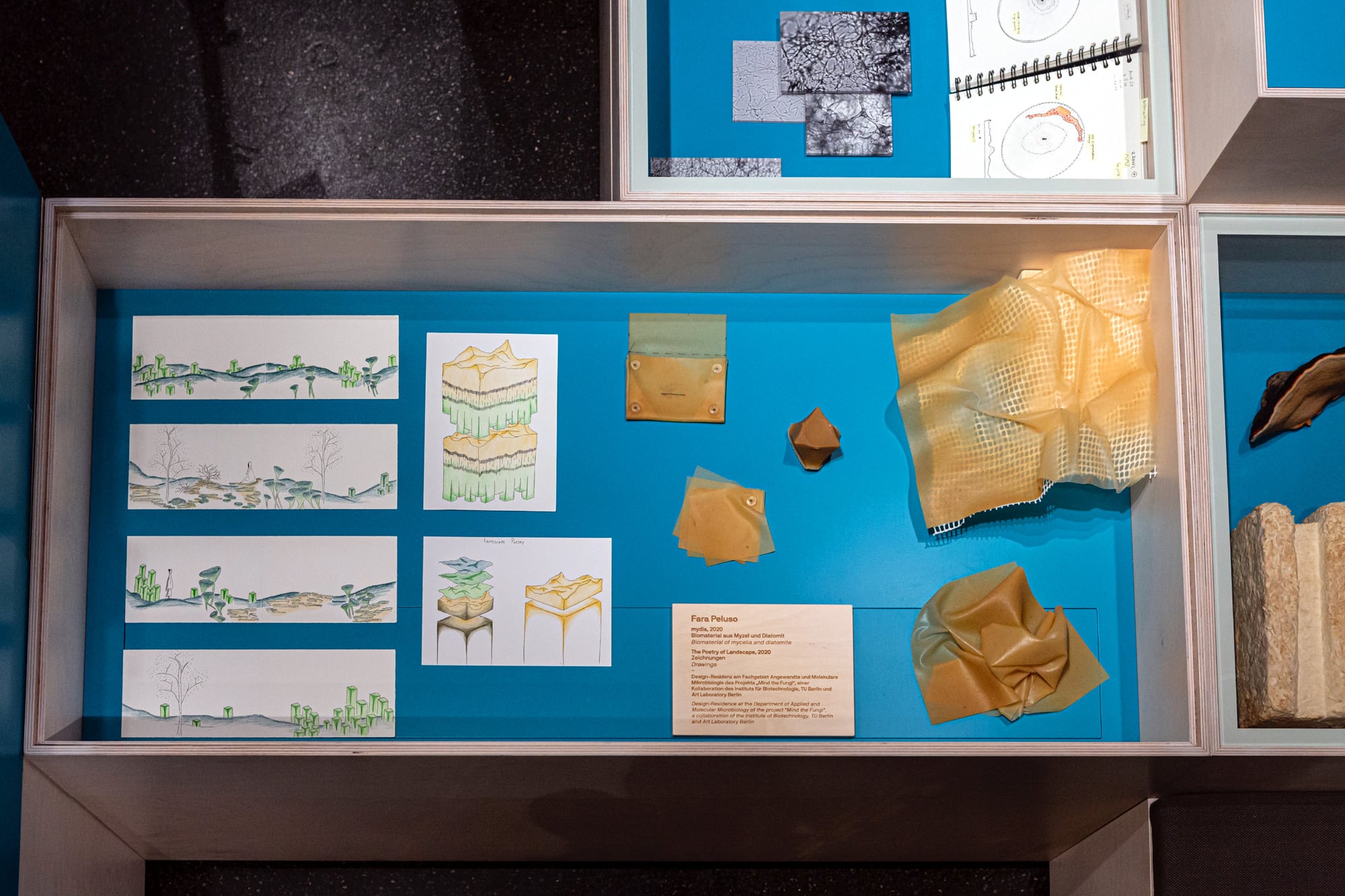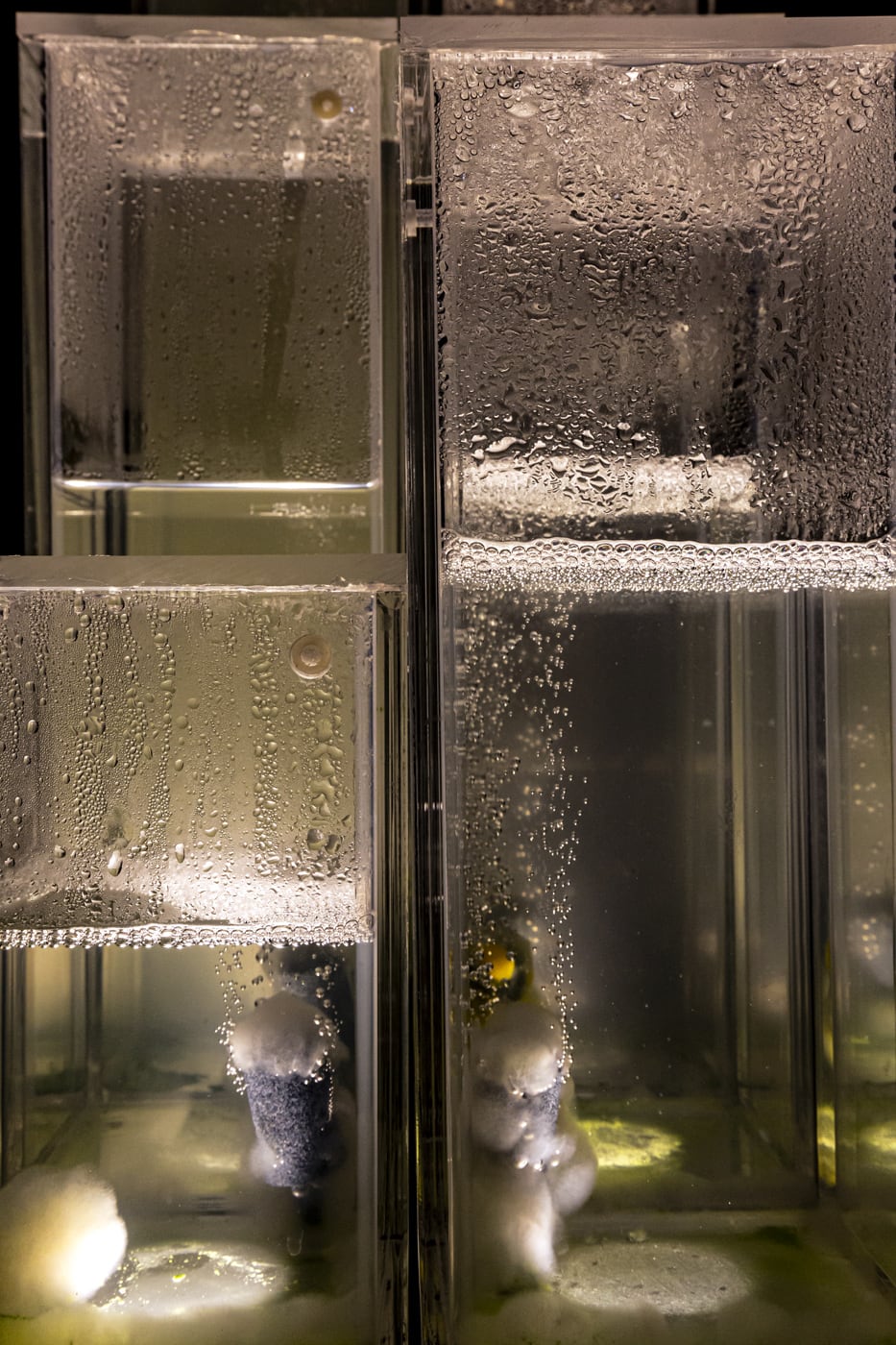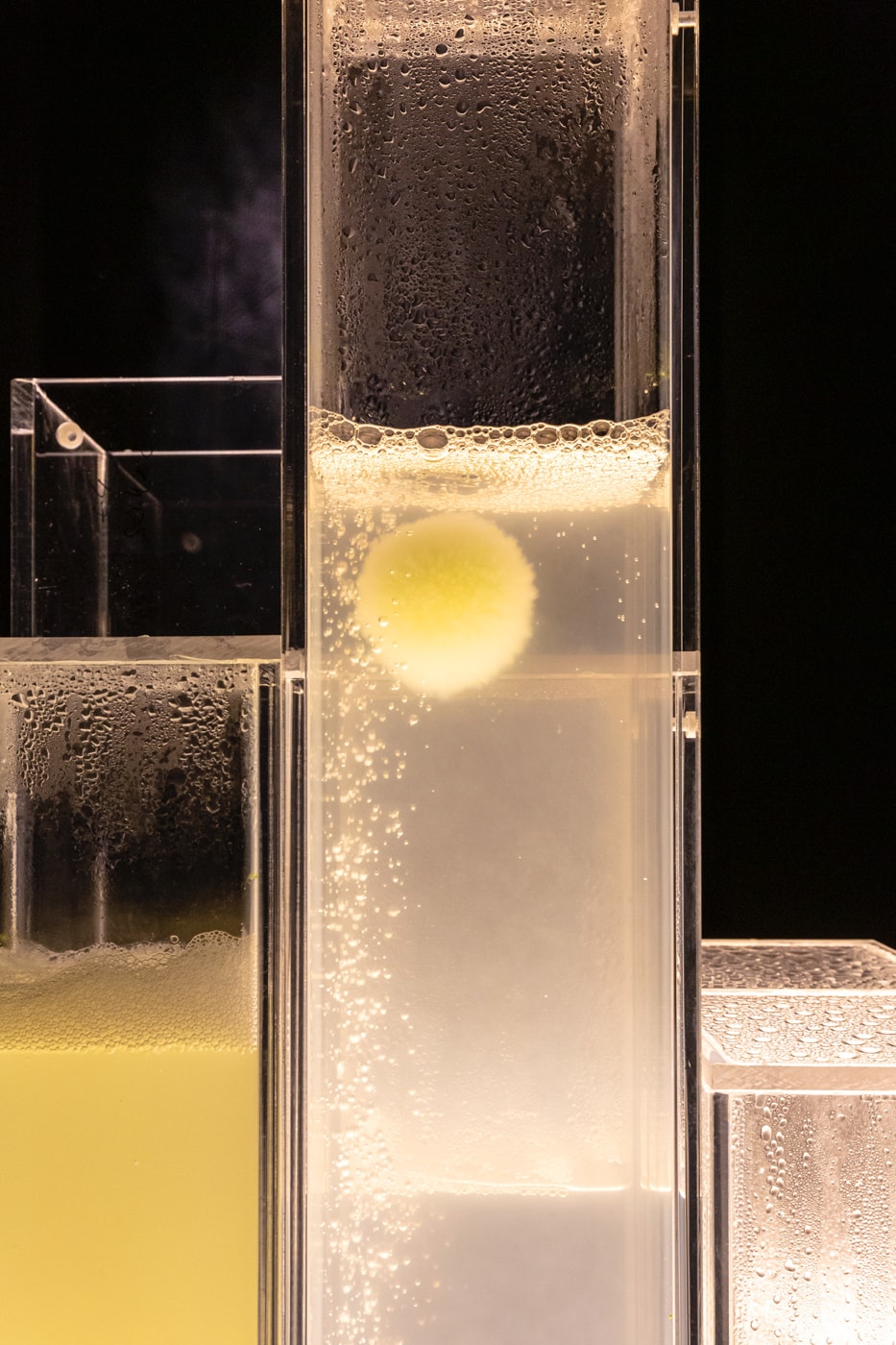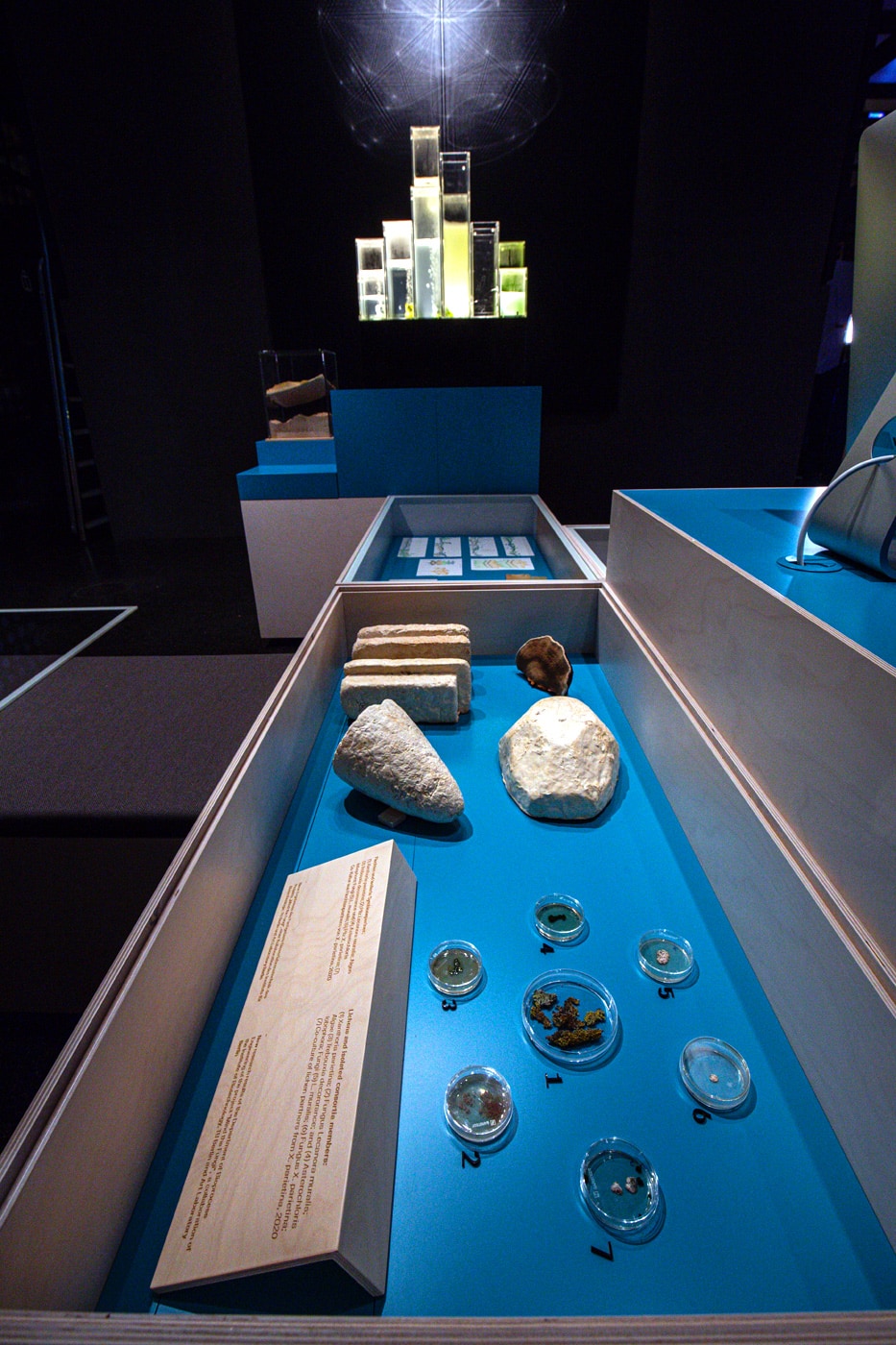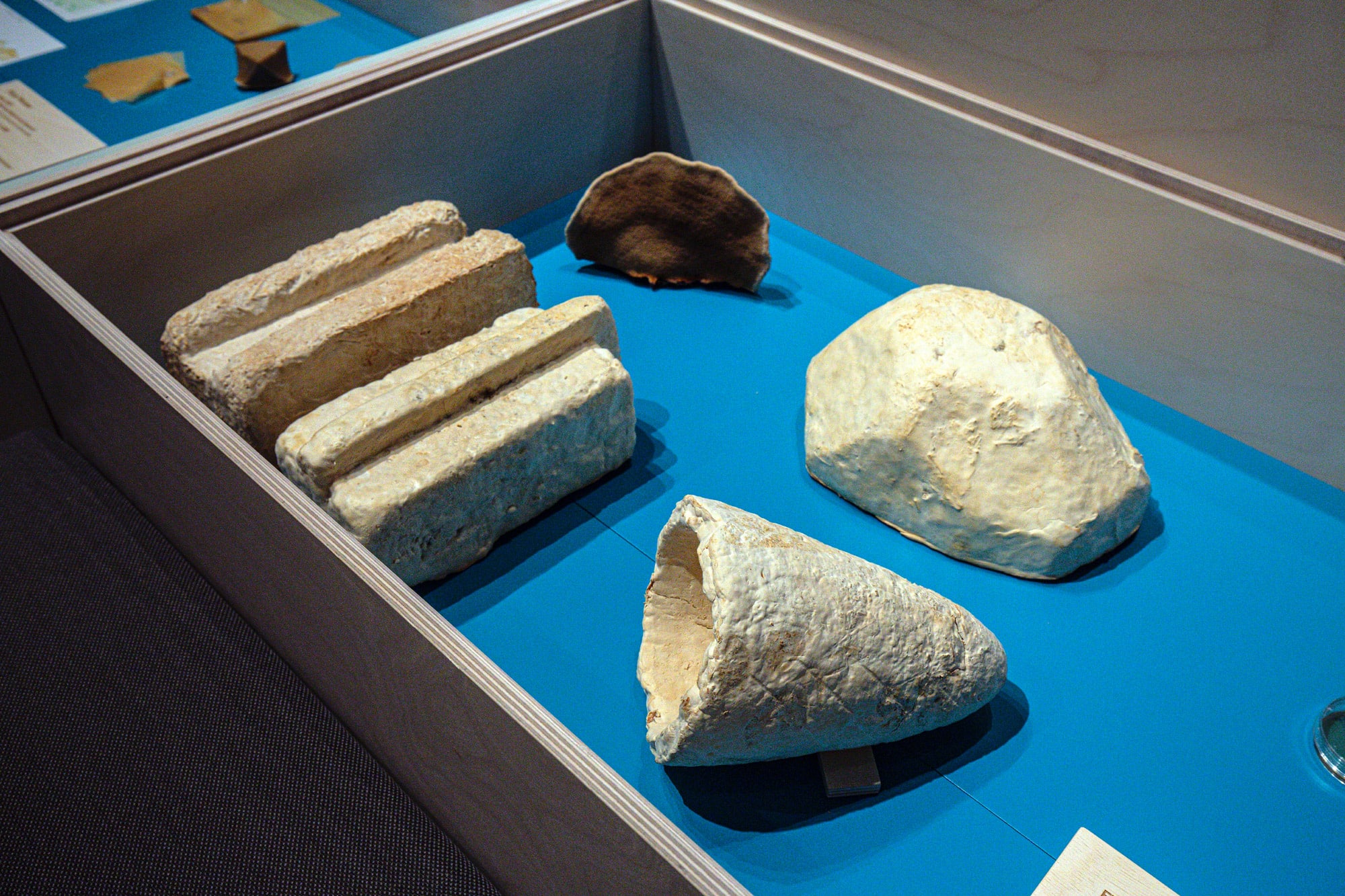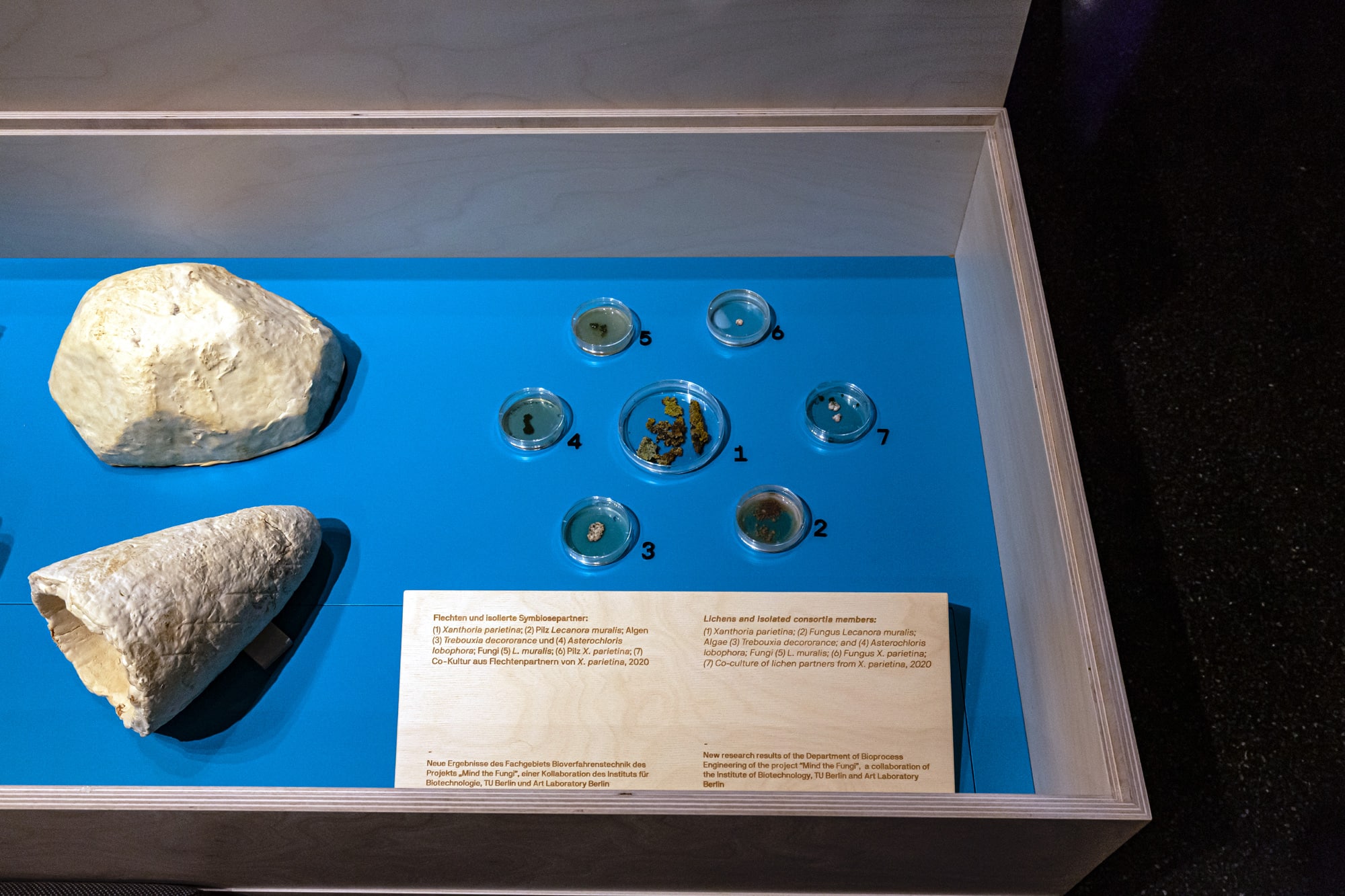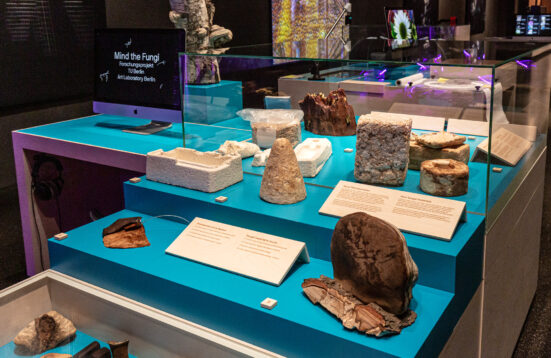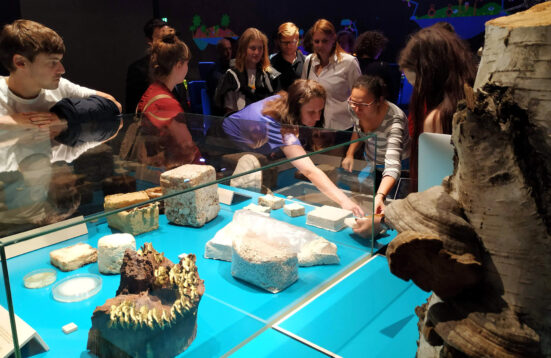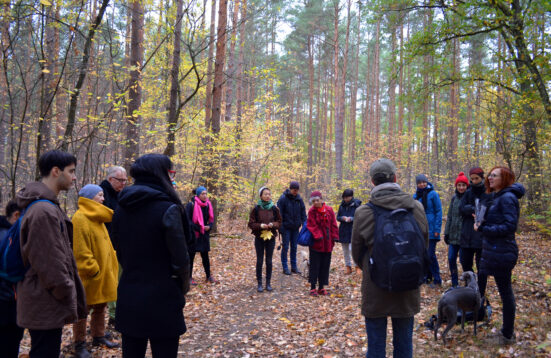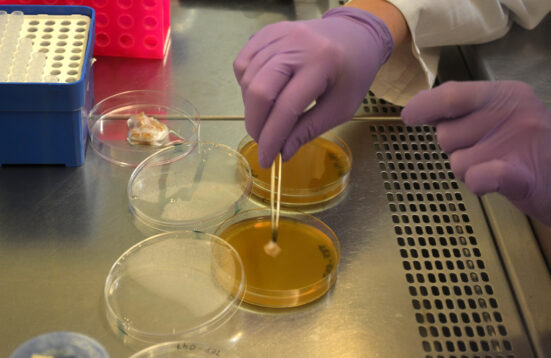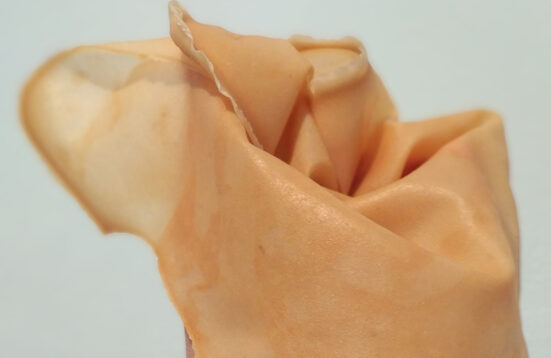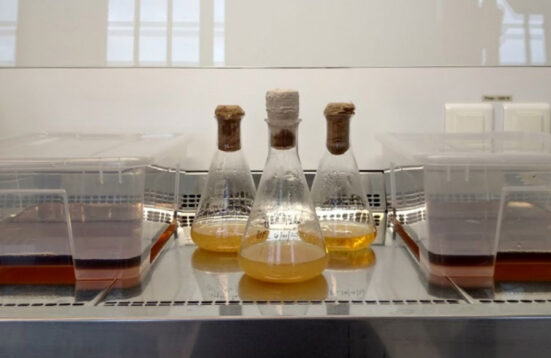Mind the Fungi
Art & Design Residencies
Theresa Schubert | Fara Peluso
The Artist- and Design-Residencies of Mind the Fungi with artist Theresa Schubert and artist designer Fara Peluso bring in art and design as constructive sources of ideas for this research project. Schubert studied the effects of sound on fungal growth. Peluso has done research on new biomaterials on the symbiotic basis of algae and fungi. The artistic and design related works are a result of a close collaboration with both departments of TU Berlin’s Institute of Biotechnology – Prof. Vera Meyer’s department of Applied and Molecular Microbiology and Prof. Peter Neubauer’s department Bioprocess Engineering.
For artist Theresa Schubert fungi are perfect network metaphors, not only due to their aesthetics but also as a philosophy of relations, process and space. For her Box Experiment she built soundproofed boxes with speakers and selected fungi mycelia stemming from the public Walk & Talks. For several weeks she exposed fungi to specific sound frequencies. Schubert was excited to see this had an effect on mycelial growth and metabolism. From this she developed the interactive video installation Sound for fungi. Homage to Indeterminacy that stimulates virtual fungi hyphae and via a hand tracking sensor letting visitors take on the role of a sound, modulating the hyphae growth and movement.
Artist designer Fara Peluso works in Material Driven Design and Bioart and connects human beings with nature, organisms and biological processes. Niche is a hybrid installation and living sculpture, which explores co-existence between fungi and algae microorganisms. Taking inspiration from symbiotic relationship between these organisms in lichens, Peluso combines nature, biotechnology and art. The sculpture Zweisamkeit combines an oak wood topography and several layers of biomaterial representing form in metamorphosis. It reflects on human development of the landscape, focusing on how we have defined and shaped our natural surroundings, but are in turn shaped by biological forces in the environment.
In addition to the work of Schubert and Peluso, the exhibition also presents new results from the laboratories of the Institute of Biotechnology at TU Berlin, for example, a prototype of a bicycle helmet made of tree mushroom mycelium by Bastian Schubert (Dep. Applied and Molecular Microbiology) or examples of symbiotic organisms in lichens (Dep. Bioprocess Engineering).

